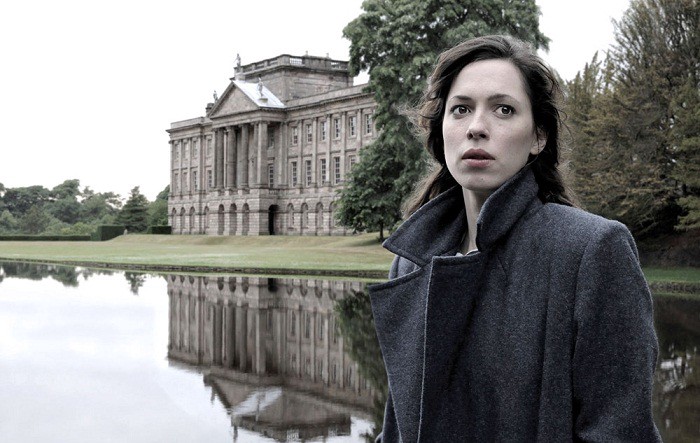Much has been made by media critics of the propensity of horror movies to fetishize the murder of women — to make them victims, suffering at the hands of
brutal forces for their sexual sins. The slasher films of the ’70s and ’80s as well as their ’90s sequels allowed audiences the killer’s-eye-view of mostly
naked women fleeing attack.
In the last few years, horror films have returned to the home as the site of terror. Some of these films, likeDon’t Be Afraid of the Dark, The Possession, and Insidious, feature children in danger. Some, such as The Conjuring and Sinister, focus on a threat to the whole family.
Others are specifically about women, and in them the supernatural force to be contended with is often a manifestation of the central character’s repressed
memories of trauma. Rather than emphasizing the killer’s perspective, the best of these films are structured so as to provoke sympathy for the victims and
to celebrate the strength of women who overcome abuse.
(Trigger warning: Two of the examples offered below deal with sexual abuse, and though the offenses do not happen on camera, the
psychological pain of the victims is pretty intense.)
The best of these films is Silent House, co-written and co-directed by Laura Lau. Elizabeth Olsen plays Sarah, who has returned to her family’s
summer home to prepare it for sale. She becomes trapped in the house (which has doors that lock from the inside, natch) and is terrorized by a shadowy
figure she assumes to be an intruder. Who or what this is saved for a late reveal, but as the film progresses it becomes clear to the audience that
something evil happened here when Sarah was young and that despite her denial of it, that evil lives on. The camera work manufactures a one-shot/real-time
experience, often from Sarah’s point of view, allowing the viewer to share her sense of claustrophobia and disorientation.
It can be hard to find a horror movie that features really good acting, but The Awakening, a British film set in post-World-War-I England, pulls it off.Rebecca Hall, known in the U.S. as Ben Affleck’s love interest in The Town, plays Florence Cathcart, an investigator of paranormal phenomena who travels the world disproving the existence of an after-life. The
caretakers of a private boarding school, played by Dominic West ( The Wire) and Imelda Staunton (Dolores Umbridge), bring Cathcart
to their campus to get to the bottom of a haunting. There she faces seemingly inexplicable phenomenon that ultimately lead back to her own past. Cathcart’s
recovered memories are not of sexual abuse, but the story warns against the danger of denying the past just the same.
The most difficult to watch of these three examples, Lovely Molly, directed and co-written by Eduardo Sánchez (The Blair Witch Project), is noteworthy mainly
for its rejection of the ultimately redemptive narrative structure of the other two. Molly, who has moved back into her childhood home with her husband,
isn’t just dealing with the effects of childhood abuse; she’s also a drug user. The distinction between what in her harrowing experience is caused by the
supernatural manifestation of her past trauma and what is caused by drugs is never really made clear, making it too easy for the audience to blame the
victim. Characterized by the same kind of camera work Sánchez used in Blair Witch, Lovely Molly provides a visceral, up-close experience
of the main character’s suffering, but ultimately it relies more on blood, gore, and nudity than psychology, suspense or surprise. Given the progress the
genre has made in allowing audience’s to identify with the victim instead of the killer, Lovely Molly feels like a step backward.
Most of this century’s horror movies have been gore-fest remakes (a la Rob Zombie’s Halloween) without any real cinematic storytelling.
Independent films like Silent House and The Awakening, on the other hand, focus the story on the woman’s point of view, relying on a
suspenseful unfolding of story and character more than shock. These films even go so far as to empower female characters with the psychological strength to
overcome the worst kinds of victimization, and for the not-faint-of-heart, they can provide a welcome catharsis.
_______________________________________
Holly L. Derr
is a director, professor, and feminist media critic who writes about theater, film, television, video games and comics. Follow her@hld6oddblend or on her tumblr, Feminist Fandom.







